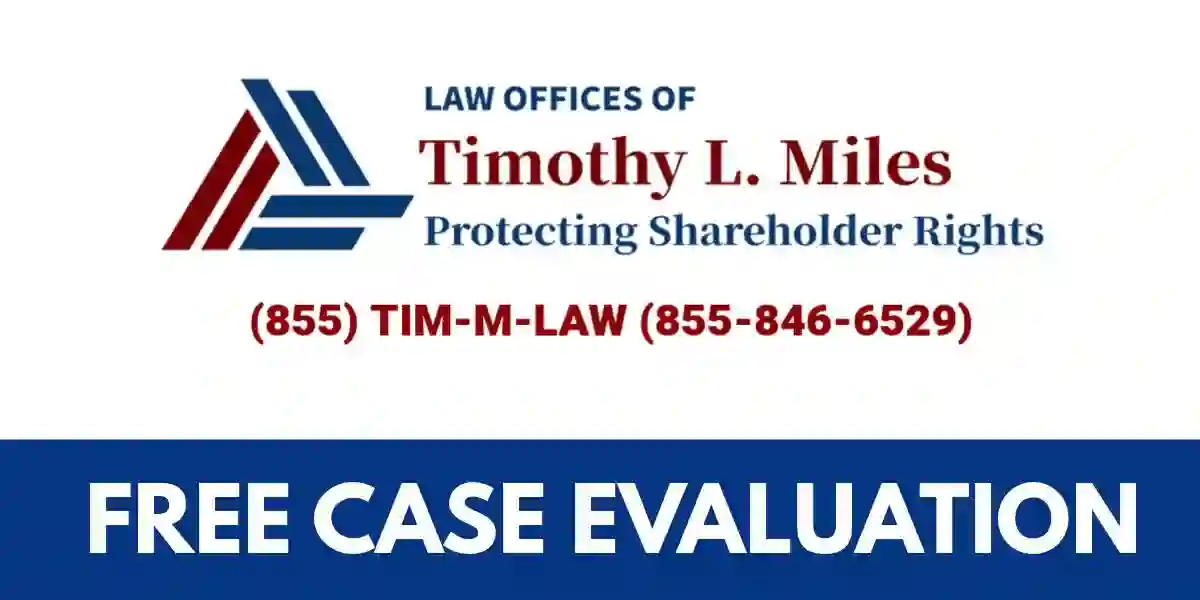Introduction to the Cytokinetics Class Action Lawsuit:
- The Cytokinetics Class Action Lawsuit has emerged as a significant legal matter for investors in Cytokinetics, Incorporated (NASDAQ: CYTK).
- The Cytokinetics Class Action Lawsuit centers around allegations of securities fraud, which has raised concerns among stakeholders regarding the integrity of the company’s financial disclosures and the potential impact on their investments.
- This article aims to provide a comprehensive overview of the lawsuit, its implications, and the steps investors can take to protect their interests.
Understanding Securities Fraud Class Action Lawsuits
- Hold the perpetrators accountable for their actions.
- Secure financial compensation for the affected investors.
- Insider trading
- False or misleading financial statements
- Misleading disclosures that harm market integrity and investor confidence.
The power of the class action mechanism
- It allows individual investors, who may not have the resources to pursue litigation alone, to band together and seek justice.
- The class action mechanism ensures the legal process is efficient and the interests of all affected investors are represented.
Navigating the legal complexities
- A significant challenge for plaintiffs is surviving a motion to dismiss, a common legal maneuver by defendants to have the case thrown out before it reaches trial.
- Understanding the specific details and nuances of a case, like the Cytokinetics class action lawsuit, is crucial for all stakeholders involved as it sets the stage for future strategic decisions.

Overview of the Cytokinetics Class Action Lawsuit
- The class action lawsuit against Cytokinetics seeks to represent investors who purchased or acquired the company’s common stock during a specified period, from December 27, 2023, to May 6, 2025.
- The Cytokinetics Class Action Lawsuit, filed in the Northern District of California, alleges that Cytokinetics and its CEO made misleading statements regarding the timeline for the approval of their lead drug candidate, aficamten, which is intended to treat obstructive hypertrophic cardiomyopathy (oHCM).
Allegations of Misleading Statements
- The core of the allegations revolves around claims that Cytokinetics misrepresented the status of its New Drug Application (NDA) submission to the U.S. Food and Drug Administration (FDA).
- Specifically, the Cytokinetics Class Action Lawsuit contends that the company failed to disclose critical information regarding the omission of a Risk Evaluation and Mitigation Strategy (REMS) from the NDA submission.
- This omission is said to have led to delays in the FDA’s review process, ultimately affecting the stock price and investor confidence.
Impact of the Cytokinetics Class Action Lawsuit on Investors
- As the Cytokinetics Class Action Lawsuit unfolded, investors experienced significant losses, particularly following announcements that revealed the true status of the NDA submission.
- On May 1, 2025, Cytokinetics disclosed that the FDA had extended the Prescription Drug User Fee Act (PDUFA) action date for aficamten, leading to a nearly 13% drop in the stock price.
- This decline was exacerbated by further admissions from the CEO regarding the company’s decision to submit the NDA without the necessary REMS.
The Lead Plaintiff Process in the Cytokinetics Class Action Lawsuit
- Investors who believe they have been adversely affected by the alleged fraud have the opportunity to seek lead plaintiff status in the class action lawsuit.
- Under the Private Securities Litigation Reform Act of 1995, any investor who purchased Cytokinetics common stock during the class period can apply to be appointed as the lead plaintiff.
- This individual will represent the interests of all class members in the lawsuit.
Key lawsuit information:
- Case Caption:Seidman v. Cytokinetics, Incorporated, No. 25-cv-07923 (N.D. Cal.)
- Class Period: December 27, 2023 – May 6, 2025
- Company: Cytokinetics, Incorporated (NASDAQ: CYTK)
- Allegations: The lawsuit alleges that the company and its executives violated the Securities Exchange Act of 1934 by making false and/or misleading statements and/or failing to disclose material facts to investors.
- Lead Plaintiff Deadline:November 17, 2025.
Criteria for Lead Plaintiff
- To qualify as a lead plaintiff, an investor must demonstrate that they have the largest financial interest in the outcome of the Cytokinetics Class Action Lawsuit and that they are typical and adequate representatives of the class.
- Importantly, an investor’s ability to recover damages does not depend on their status as the lead plaintiff.
Filing Deadlines
- Investors interested in participating in the Cytokinetics Class Action Lawsuit must act promptly, as the deadline to file a motion for lead plaintiff status is November 17, 2025.
- It is crucial for affected investors to gather relevant documentation and consult with legal counsel to ensure their rights are protected.
The Benefits of Serving as a Lead Plaintiff in the Cytokinetics Lawsuit
- Influencing litigation strategy: As a lead plaintiff, you have a direct voice in key strategic decisions, including the decision to settle or proceed to trial.
- Negotiating more competitive fees: Your involvement provides an opportunity to negotiate more competitive attorney fees and reduce litigation costs, which can maximize the net recovery for the entire class.
- Active participation in the case: You will be able to review important court filings, monitor the progress of the case, and discuss litigation strategies with legal counsel.
- Leading settlement discussions: Lead plaintiffs participate in mediation and settlement discussions and must approve any settlement before it is presented to the court.
- No financial risk: In most cases, no financial risk, as lead counsel covers all costs and expenses. They work on a contingency basis are only paid if they secure a settlement or judgment, and reimbursement for expenses comes from the settlement fund, not your personal assets.
The Responsibilities the Lead Plaintiff Will Have in the Cytokinetics Class Action Lawsuit
- Overseeing lead counsel: You will select, monitor, and oversee the law firm representing the class.
- Reviewing legal documents: You will review and provide feedback on important court filings before they are submitted.
- Discussing strategy: You will work directly with lead counsel to discuss litigation strategies and key decisions.
- Potential participation in legal events: This may include attending depositions and hearings, if necessary.
- Input on settlement decisions: Your input will be crucial for any decision concerning the settlement of the securities class action.
The Legal Requirements for Prevailing in the Cytokinetics Class Action Lawsuit
Material misrepresentation or omission
- A false statement or concealment. This element requires the defendant to have made a public statement that was either an “untrue statement of a material fact” or to have failed to disclose a material fact necessary to make the statements not misleading.
- Materiality. A fact is “material” if a reasonable investor would have considered it important when deciding whether to buy or sell a security. This is an objective standard, not based on what a specific individual investor might consider important.
Scienter
- Culpable state of mind. Scienter is a Latin term referring to a mental state involving intent or knowledge of wrongdoing.
- Intent to deceive. To meet this requirement, the plaintiff must prove that the defendant acted with an “intent to deceive, manipulate, or defraud”.
- Recklessness. While negligence is not enough, acting with a severely reckless disregard for the truth can also satisfy the scienter requirement.
Connection to a securities transaction
- In connection with the purchase or sale. The fraudulent conduct must have occurred in connection with the purchase or sale of a security. This means the deception was part of a securities transaction.
Reliance
- Justifiable dependence on the statement. The plaintiff must show that they relied on the misrepresentation or omission when making their investment decision. Reliance is sometimes called “transaction causation” because it establishes the causal link between the deception and the investor’s decision to enter the transaction.
- “Fraud-on-the-market” theory. For public securities traded on an efficient market, plaintiffs may be able to invoke a legal presumption that they relied on the integrity of the market price, which presumably incorporated the material misstatement. The defendant can attempt to rebut this presumption.
Economic loss
- Tangible financial harm. The plaintiff must demonstrate that they suffered a measurable financial loss. It is not enough to simply show that a misrepresentation was made.
- Out-of-pocket damages. A common measure of loss is the difference between the price the plaintiff paid for the security and its value at the time of purchase, had the truth been known.
Loss causation
- The “what if” scenario. This element establishes the causal link between the fraudulent misstatement or omission and the plaintiff’s economic loss. The Supreme Court case Dura Pharmaceuticals v. Broudo made it clear that a plaintiff cannot simply allege that they paid an artificially inflated price.
- Corrective disclosure. To prove loss causation, a plaintiff often must show that the stock price dropped after the truth became known, thereby linking the fraud to the investor’s actual economic harm. The plaintiff must isolate the portion of the loss attributable to the fraud versus other factors, such as general market downturns or other unrelated business problems.
Legal Representation and Resources
If you suffered substantial losses and wish to serve as lead plaintiff of the Cytokinetics Class Action Lawsuit or just have general questions about you rights as a shareholder, please contact attorney Timothy L. Miles of the Law Offices of Timothy L. Miles, at no cost, by calling 855/846-6529 or via e-mail at [email protected].(24/7/365).
Understanding Securities Fraud
- Securities fraud encompasses a range of deceptive practices that mislead investors regarding the financial health or performance of a company.
- In the case of Cytokinetics, the alleged misleading statements about the NDA submission and the subsequent impact on stock prices exemplify the serious nature of such fraud.
Common Types of Securities Fraud
- Misrepresentation of Financial Information: Companies may provide false or misleading financial statements to inflate their stock prices.
- Omissions of Material Facts: Failing to disclose critical information that could influence an investor’s decision.
- Insider Trading: Executives trading stocks based on non-public information, which can lead to unfair advantages.
Consequences of Securities Fraud
- The consequences of securities fraud can be severe, not only for the companies involved but also for investors.
- Companies may face regulatory penalties, civil lawsuits, and reputational damage, while investors may suffer significant financial losses.
The Role of Regulatory Bodies
- Regulatory bodies, such as the Securities and Exchange Commission (SEC), play a crucial role in overseeing the securities market and enforcing laws against fraud.
- The SEC investigates allegations of securities fraud and can impose fines, sanctions, or other penalties on companies and individuals found to be in violation of securities laws.
Importance of Compliance
- Companies must adhere to strict compliance standards to maintain transparency and protect investors.
- This includes accurate financial reporting, timely disclosures, and adherence to regulatory requirements. Failure to comply can lead to legal repercussions and loss of investor trust.
Protecting Your Investments
- Investors must remain vigilant and proactive in protecting their investments, especially in light of potential fraud.
- Here are some strategies to consider:
Conduct Thorough Research
- Before investing in any company, conduct comprehensive research on its financial health, management practices, and regulatory compliance.
- Look for red flags, such as frequent changes in leadership or inconsistent financial reporting.
Monitor Company Announcements
- Stay informed about company announcements, earnings reports, and regulatory filings.
- Timely information can help investors make informed decisions and react quickly to any potential issues.
Diversify Your Portfolio
- Diversification is a key strategy for mitigating risk.
- By spreading investments across various sectors and asset classes, investors can reduce the impact of a single company’s poor performance on their overall portfolio.
Conclusion
- The Cytokinetics Class Action Lawsuit serves as a reminder of the importance of transparency and accountability in the financial markets.
- Investors must remain vigilant and informed to protect their interests and navigate the complexities of securities fraud.
- By understanding the legal processes involved and seeking appropriate legal counsel, affected investors can take proactive steps to safeguard their investments and seek justice in the face of alleged wrongdoing.
Frequently Asked Questions About the Cytokinetics Class Action Lawsuit
What initiated the Cytokinetics class action lawsuit?
The Cytokinetics Class Action Lawsuit was initiated by investors alleging that Cytokinetics provided misleading information regarding its financial health and operations, resulting in financial losses.
How can I join the Cytokinetics Class Action Lawsuit?
If you purchased shares during the class period and suffered a loss, then you are automatically a member of the class and do not need to do anything at this point unless you are considering moving for lead plaintiff.
What are the potential benefits of a Cytokinetics Class Action Lawsuit?
Class action lawsuits allow individual investors to collectively seek justice and compensation, which might be challenging to pursue individually. They also promote corporate accountability.
How long will the Cytokinetics class action lawsuit take to resolve?
The duration of class action lawsuits can vary significantly, depending on the complexity of the case, legal strategies, and whether settlements are reached. It could take several months to years.
Contact Timothy L. Miles Today About a Cytokinetics Class Action Lawsuit
If you suffered substantial losses and wish to serve as lead plaintiff of the Cytokinetics Class Action Lawsuit or just have general questions about you rights as a shareholder, please contact attorney Timothy L. Miles of the Law Offices of Timothy L. Miles, at no cost, by calling 855/846-6529 or via e-mail at [email protected]. (24/7/365).
Timothy L. Miles, Esq.
Law Offices of Timothy L. Miles
Tapestry at Brentwood Town Center
300 Centerview Dr. #247
Mailbox #1091
Brentwood,TN 37027
Phone: (855) Tim-MLaw (855-846-6529)
Email: [email protected]
Website: www.classactionlawyertn.com
Facebook Linkedin Pinterest youtube
Visit Our Extensive Investor Hub: Learning for Informed Investors





